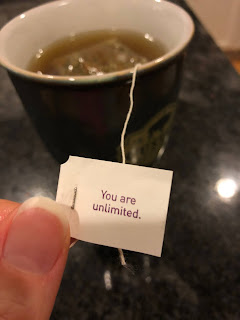Our topic at the SFF
Seven this week is the item from your books you most want to own and why.
Hmmm, let me think. The
first item which came to mind was the blaster – I’ve always wanted a blaster. There’s
a lot of fun technology in my Sectors scifi romance series but the more I thought
about it, the more I decided…no. These items don’t exist outside of their own
ecosystem, as it were. I wouldn’t be able to recharge the blaster (although I
do seem to have given it a pretty limitless capacity. I don’t remember anyone
reloading during a battle in any of my books.) The high tech medical tech needs
support systems as well. And besides, importing an item into our current time
doesn’t always work out well. Lots of classic science fiction tells that tale! “The
Little Black Bag” by Cyril Kornbluth comes to mind…
I can just see the Twilight
Zone-esque unintended consequences of me importing some Sectors tech into
present day Southern California.
Now I would enjoy
having Midorri the alien pet…but she’d be hard to explain. Jake the Cat would
probably object to sharing
his house,
cat tree and litter box with an alien interloper. Not to mention his cat
treats! Moby the
Nebula Zephyr’s ship
cat likes Midorri and they get along very well but Jake isn’t as collegial. He
won’t share my lap for sure.
Moving on to my ancient
Egyptian novels, I’d love to have some of the jewelry. I’ve craved a pair of
those elaborate, intricate earrings since the first time I saw the King Tut
exhibit way back in the 1970’s. BUT, where would I wear them? I’m known for
wearing elaborate and fanciful jewelry, especially earrings, anytime, anywhere
but actual ancient Egyptian trinkets of the kind I’d like would be over the top
at the grocery store, even for me.
And in my Magic of
Claddare series, I haven’t really created much in the way of ensorcelled or
powerful objects, although there was one pendant but it belongs to a goddess
and I’d rather not risk upsetting her and bringing her into our realm on the
trail of her necklace.
(Hmm, I do seem to be
mostly about the jewelry, the pets and the weapons, don’t I?)
The last thing I
considered was MARL, the ancient alien Artificial Intelligence from my Badari
Warriors scifi series. He’s pretty self-sufficient, has infinite capabilities
and between us we could probably figure out all kinds of nifty stuff to work
on. He can be condescending and cantankerous as well and he accepts only one
Authority at a time. I don’t think he’d react well to my removing him from Jill
Garrison’s vicinity since she rescued him from (MILD SPOILER) ten thousand
years of waiting on standby after his actual owner died.
I guess I’ll leave the
goodies in the worlds I’ve created and allow my characters (and my readers) to
enjoy them!
The scene where Jill discovers MARL, from the
first book in the award winning series, Aydarr:
Her light made the
mineral deposits in the walls and the stalagmites and stalactites twinkle with
variegated colors as she swept it across the huge room in front of her. She
stumbled and checked herself again as the beam crossed a figure lying huddled
next to a large stalagmite.
“Hello?” Jill was ready
to duck for cover but the person didn’t move and, as she played the light over
him or her again, she realized she was gazing at a corpse.
Slowly, she walked to
the spot where the other had spent their last moments. The figure was humanoid,
dressed in some kind of flight suit, wearing a helmet obscuring her view of the
face. One leg was bent in an awkward position that made her wince in sympathy.
The body could have been there for millennia, preserved by the minerals and
atmosphere in the cave. The entire form was encased in a layer of sparkly
limestone, or whatever the predominant mineral dripping down the cavern’s walls
might be.
With a pang of regret,
Jill knew she was never going to see the face of the ancient. “I wonder what
happened to him,” she said, rising and glancing around the cave. The sound of
her own voice was reassuring. “I didn’t see any wreckage from a crashed ship
outside.”
“Are you the rescue
mission?”
Startled into a scream,
Jill leaped sideways, into the shelter of a stalagmite, and aimed her weapon in
the direction of the voice. “Who’s there?”
“You’re not the rescue
mission.” The tone was oddly singsong, as if tasting the sounds, playing with
the sentence structure. “Give me more language samples. I can only infer so
much.”
Jill peered around the
edge of the stone formation. There was an ovoid metallic unit which she’d
ignored initially, sitting a few feet away from the corpse. Now the device
displayed blinking blue and violet lights. “Who are you? What do you want?” she
asked.
The lights moved
faster, adding colors. “This would be easier if I could have direct access to
your brain waves.”
“Uh-uh, not happening.”
“Your kind is unknown
to me, although similar to many beings encountered on missions in the past.
Where does your species originate?”
“I think I should be
the one asking the questions,” Jill said. “I have the pulse rifle. What are
you?”
“I’ll take input
however you choose to provide it, even in the form of questions. I am MARL.”
“Which tells me
nothing.”
“I can’t translate the
acronym. I don’t believe your language has the capabilities for all the
capabilities I encompass. You appear to be a member of a primitive race.”
Stifling a chuckle,
Jill gave the blinking lights a sideways glance. “Insulting me isn’t a great
way to make friends.”
Green lights added
themselves to the blue and violet. After a short pause, MARL said, “No insult
was intended, merely a statement of fact.”
“What happened here?”
She waved one hand at the calcified corpse. “How long ago did he or she die?”
“Based on my
calculations, about 10,000 of this planet’s years have passed since I received
my last instructions.” MARL made a humming noise, and the lights blinked furiously,
a few red pinpoints among the other hues. “We were trying to get home because
my pilot had vital information he hoped might lead to the defeat of the enemy,
but they pursued us and damaged the ship.”
“I didn’t see any signs
of a ship out there.” Jill gestured toward the mouth of the cave.
“It crashed into the
lake when he tried to land.”
“Injured as he was, are
you trying to tell me he swam to safety then dragged himself and you up here?”
Jill was fascinated by the story but skeptical.
“I am self-mobile and
can manifest other, additional forms.” MARL’s hum rose to an ear splitting
volume but nothing else happened. After a moment of silence, it said, “Well, if
I were at full power, I could. I’ve been in hibernation mode, doing the minimum
required, until you arrived. I am in the process of powering up.”
Jill thought the alien
AI, if that was indeed what MARL might be, sounded rather grumpy and a bit
embarrassed. She decided to think of MARL as a male entity, since the voice was
masculine in timber. Maybe MARL sounded like its pilot had in his lifetime.
“Are those your manifestations, as you call it, outside the cave? Because one
was crushed by a rockslide and the other was half buried in dirt and debris.”
“Yes. The unit you see
here is a portable emergency subset of myself, automatically ejected when the
ship crashed. Two of my separate selves assisted the pilot in exiting the
submerged wreck and brought him here, with me.” MARL levitated off the cave
floor briefly before drifting back. “I sent a distress call then I executed the
final order from my pilot. Since then, I’ve waited, set to standby status.”
Sounds like a report.
Deciding she wasn’t in jeopardy from the ancient AI, Jill walked out from
behind the rocks. “What was his final order?”
“To shield this valley
from the enemy. Allow no overflights, no scans. I directed all my remaining
power to the effort, until or unless contradicted by someone in authority. Are
you in authority now?”
Shaking her head, Jill
asked, “Why would you accept my orders? I’m obviously not connected to the
people who created you.”
“I’m not meant to
operate independently, but to support the organic beings in charge of the
mission. As no rescue of my pilot was ever attempted, nor any message received,
I can only surmise the civilization to which he belonged, and their enemies as
well, have passed from the galactic stage. Although primitive, you appear to
have the sentience required to make use of my capabilities to at least a
limited extent. I was built to serve,” MARL said in a quiet voice. “Ten
thousand years is a long time to have no real purpose.”
The
blurb:
Jill Garrison, a
maintenance tech at the Sectors Amarcae 7 colony, goes to sleep one night as
usual only to wake up in her nightgown stranded in the middle of a forest on an
unknown world. There’s no time to think as she’s stalked by carnivorous
predators and rescued by genetically engineered warriors calling themselves the
Badari. Turns out they and she, along with her whole colony, are now prisoners
of the Khagrish, a ruthless race of alien scientists. Working for enemies of
the Sectors, the Khagrish have created the Badari to be super soldiers.
Aydarr, the Badari
alpha, isn’t sure he can trust Jill but his attraction to her is undeniable. He
impulsively claims her as his mate to prevent her death at the hands of the
Khagrish.
Can he continue to
protect her from the experiments already underway? Will his claiming her put
his pack in jeopardy from their alien masters?
As Jill searches for a
way to rescue her fellow humans and get them all to safety, she finds herself
falling for Aydarr, despite the secrets he’s keeping. She has a few of her own.
The situation becomes
dire when Aydarr and his pack are sent offplanet on a mission, leaving Jill
unprotected, prey for the senior scientist. Can she escape the experiments he
has in mind for her? Will she be able to thwart the Khagrish plans and liberate
humans and Badari alike? How will she and Aydarr reunite?
Amazon B&N Google Kobo
iBooks







































